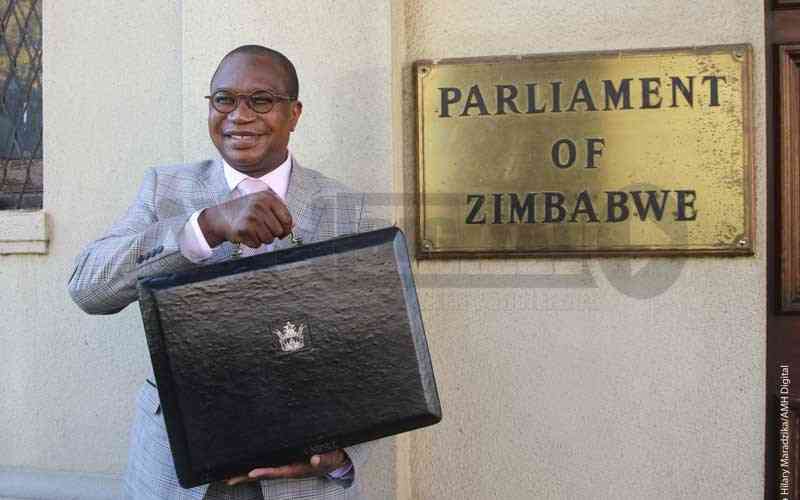
FINANCE minister Mthuli Ncube yesterday revealed that President Emmerson Mnangagwa played a part in the formulation of the 2024 national budget to be presented in Parliament this afternoon.
Ncube made the revelations in an interview with a State-owned local television channel saying the budget was, in essence, Mnangagwa’s.
The budget presentation follows complaints that Treasury had failed to conduct physical public consultations for the budget.
Ncube said he met Mnangagwa outside Cabinet on several occasions where he would dictate what he wanted to be included in the budget.
“I meet the President every week, not in Cabinet. We meet because the Finance, Economic Development and Investment Promotion ministry reports directly to his Excellency,” Ncube said.
“It’s his ministry, so we meet every week to discuss policy issues.
“When it comes to the budget again, I take him through our thinking in terms of the excess budget and how the economy is doing.
“I take him through the revenue measures, and he always comes back, pushes back, and give us ideas. He always asks very good questions.”
- Bodies ‘rotting’ at UBH
- SOS for slain Elvis Nyathi’s children
- Bulawayo water woes persist despite rains
- CCC moves to consolidate support base
Keep Reading
He said Mnangagwa was aware of the content of the budget to be presented today.
“Actually, I do not want to be questioned by him. They are tough questions, and you have to be clear, so I would say, maybe I should do this differently. So, we have that interaction. He had tremendous input into the budget,” Ncube told ZTN.
“As I speak, he knows everything that I will be presenting in terms of revenue measures, areas of relief, additional revenue, and areas of how to improve the tax administration. He is fully aware, and he has given input.
“In a way, it’s his budget.”
Although Ncube said the Finance ministry was under Mnangagwa’s supervision, under Government Gazette General Notice 1925A of 2023, as prescribed by sections 99 and 104 of the Constitution, the President assigned Vice-President Constantino Chiwenga to oversee all economic sector ministries.
Meanwhile, public finance watchdogs yesterday raised fears that the budget would not reflect the citizens’ aspirations because of limited consultations.
The consultations were conducted online, mainly on public radio stations, unlike in previous years, where meetings would be done physically.
Coalition for Market and Liberal Solution executive director Rejoice Ngwenya said the Treasury chief’s remarks explain why the national budget was “militarised.”
“I do not for once think ED (Mnangagwa) has the 'depth' and interest to contribute anything to the budget, other than saying 'add more money to the soldiers and police'. If indeed, as he says, it's his budget, it's going to be shallow and uneventfully dreary,” he said.
Zimbabwe Coalition for Debt and Development programmes manager John Maketo said: “The budget must address the immediate needs of ordinary people, particularly bread and butter issues. It must make sense to all.”
He said the budget must be inclusive, pro-poor, and create opportunities for the majority of the poor.
“It must seek to close existing inequality gaps. This is an indication that public policy is top-driven rather than people-driven,” Maketo said.
National Consumer Rights Association spokesperson, Effie Ncube, told NewsDay that government must take stakeholder input seriously.
“Consultation for the sake of consultation is not the way to go. It must be a good faith engagement,” he said.
The Zimbabwe Congress of Trade Union (ZCTU) challenged Ncube to present a pro-poor budget.
“Reviewing taxes downwards for anyone earning less than a living wage is a must,” ZCTU secretary-general Japhet Moyo said in an interview.
“The government should not tax someone earning below a minimum wage.”
Ncube presents the budget when the majority of the country’s citizens are wallowing in poverty with the Zimdollar on a free-fall while companies are struggling to stay afloat.
There have been calls to re-dollarise, but Mnangagwa has dug in saying his dedollariation strategy remains on course.
Mnangagwa reintroduced the local currency in 2019 after a decade of relative economic stability.










